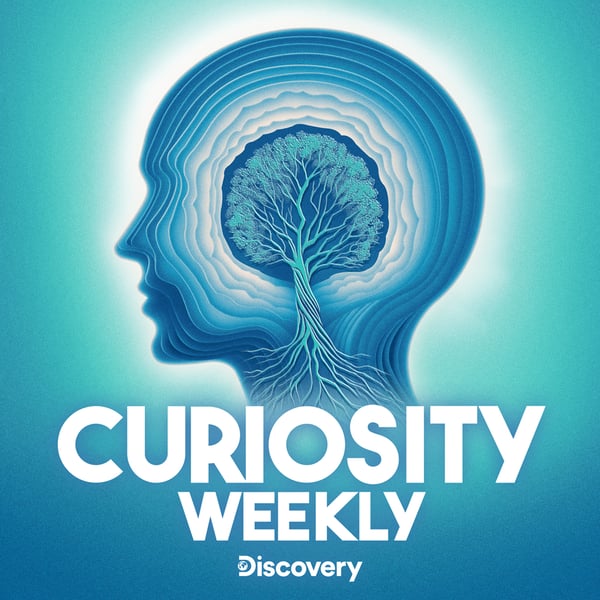Sea Sponge, Black in Marine Science, Stem Cell Mice
Curiosity Weekly
Warner Bros. Discovery
4.6 • 935 Ratings
🗓️ 26 February 2025
⏱️ 25 minutes
🧾️ Download transcript
Summary
Dr. Samantha Yammine is joined by Dr. Tiara Moore who is a marine ecologist and the founder of Black in Marine Science to talk about her research as well as her advocacy work to ensure equitable systems are in place for Black scientists within the scientific community. Sam digs into a deep sea sponge that has inspired researchers to create a filter that can protect our oceans from a future oil spill and a recent study released where scientists created mice using the DNA from two sperms.
Link to full Show Notes HERE
Follow Curiosity Weekly on your favorite podcast app to get smarter with Dr. Samantha Yammine — for free! Still curious? Get science shows, nature documentaries, and more real-life entertainment on discovery+! Go to https://discoveryplus.com/curiosity to start your 7-day free trial. discovery+ is currently only available for US subscribers.
Hosted on Acast. See acast.com/privacy for more information.
Transcript
Click on a timestamp to play from that location
| 0:00.0 | The ocean connects us all fuels life and holds our future. |
| 0:07.0 | But without representation in the voices who shape marine science, honestly that future is at risk. |
| 0:13.0 | Black and marine science is making waves by uplifting black scientists, educators, and ocean advocates, ensuring the ocean's future for everyone on the planet. |
| 0:25.3 | I'm Dr. Samantha Amin, and this is Curiosity Weekly from Discovery. |
| 0:29.5 | There's not a lot of folks that look like me that you can imagine in the PhD level who are doing this research. |
| 0:35.6 | But on the other end of that, when you look at who is impacted |
| 0:39.2 | by climate change, environmental disasters, it is the folks who look like me. |
| 0:44.3 | That was Dr. Tierra Moore. We'll talk with her about the work she's doing in marine ecology |
| 0:49.1 | and her work to create more equitable systems in the science community. And then later, we're going |
| 0:55.1 | to get into a recent study where a mouse was born with the genes from just sperm. It has some |
| 1:00.4 | really interesting implications on research tools and human health. But first, let's talk about |
| 1:05.5 | biomimicry. It turns out, scientists are imitating nature to help protect our planet. |
| 1:20.1 | Researchers and scientists are constantly creating new and innovative technologies inspired by nature. |
| 1:29.3 | It's called biomimicry, and we've used it to invent a ton of stuff, everything from Velcro to airplanes and even cement, which also happens to be carbon sequestering cement, fun fact. Recently, scientists in China are using an interesting form of |
| 1:34.8 | biomimicry that could actually help us when it comes to cleaning up our oceans. They created a new |
| 1:40.5 | type of oil filter based on the anatomy of a deep sea sponge found in the Pacific |
| 1:44.9 | ocean called e-asperigillum, or more cutely, the Venus's flower basket. But let's get into |
| 1:51.4 | why there's a need for this tech in the first place. Oil spills can produce environmental |
| 1:56.0 | catastrophes because oil and water, of course, don't mix. But there are only a few ways to address the damage they |
| 2:03.0 | cause. There's skimming, which, like it sounds, involves skimming the layer of oil off the surface of the |
| 2:08.3 | water. There's burning the oil directly on the water where it was spilled. And then there's chemical |
| 2:13.9 | dispersants which help break the oil down into smaller droplets. But the oil's not |
... |
Transcript will be available on the free plan in -24 days. Upgrade to see the full transcript now.
Disclaimer: The podcast and artwork embedded on this page are from Warner Bros. Discovery, and are the property of its owner and not affiliated with or endorsed by Tapesearch.
Generated transcripts are the property of Warner Bros. Discovery and are distributed freely under the Fair Use doctrine. Transcripts generated by Tapesearch are not guaranteed to be accurate.
Copyright © Tapesearch 2025.

